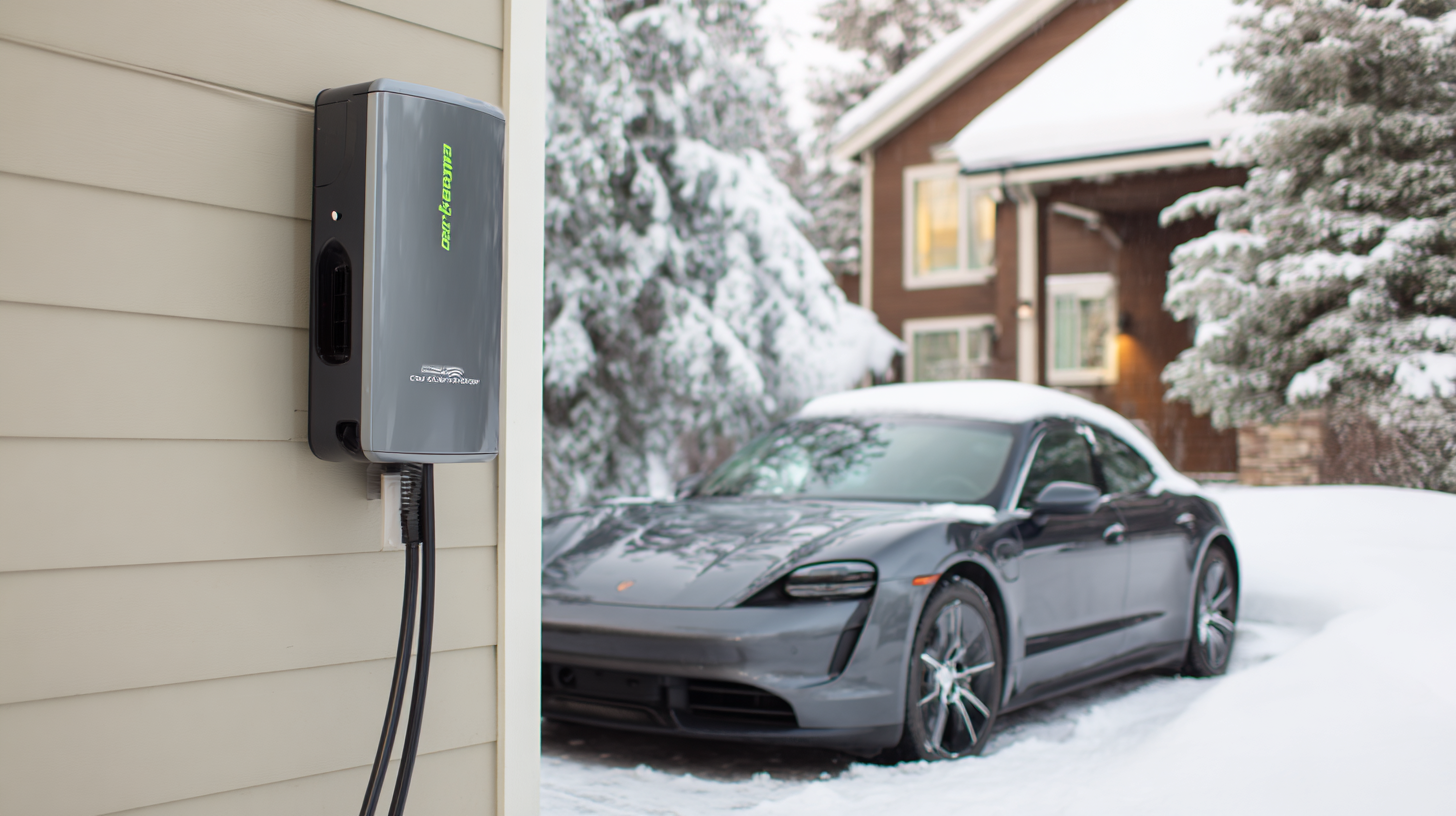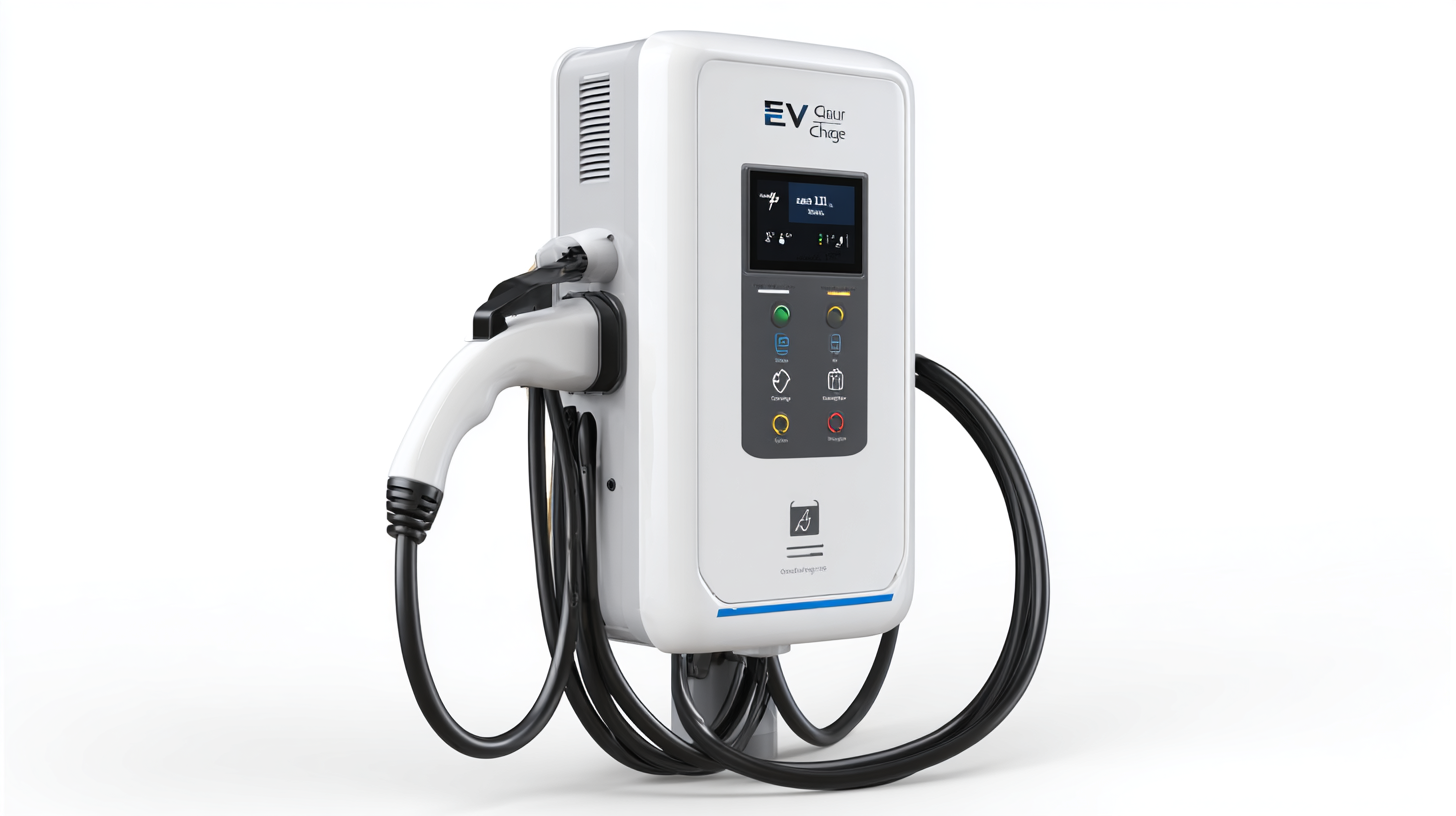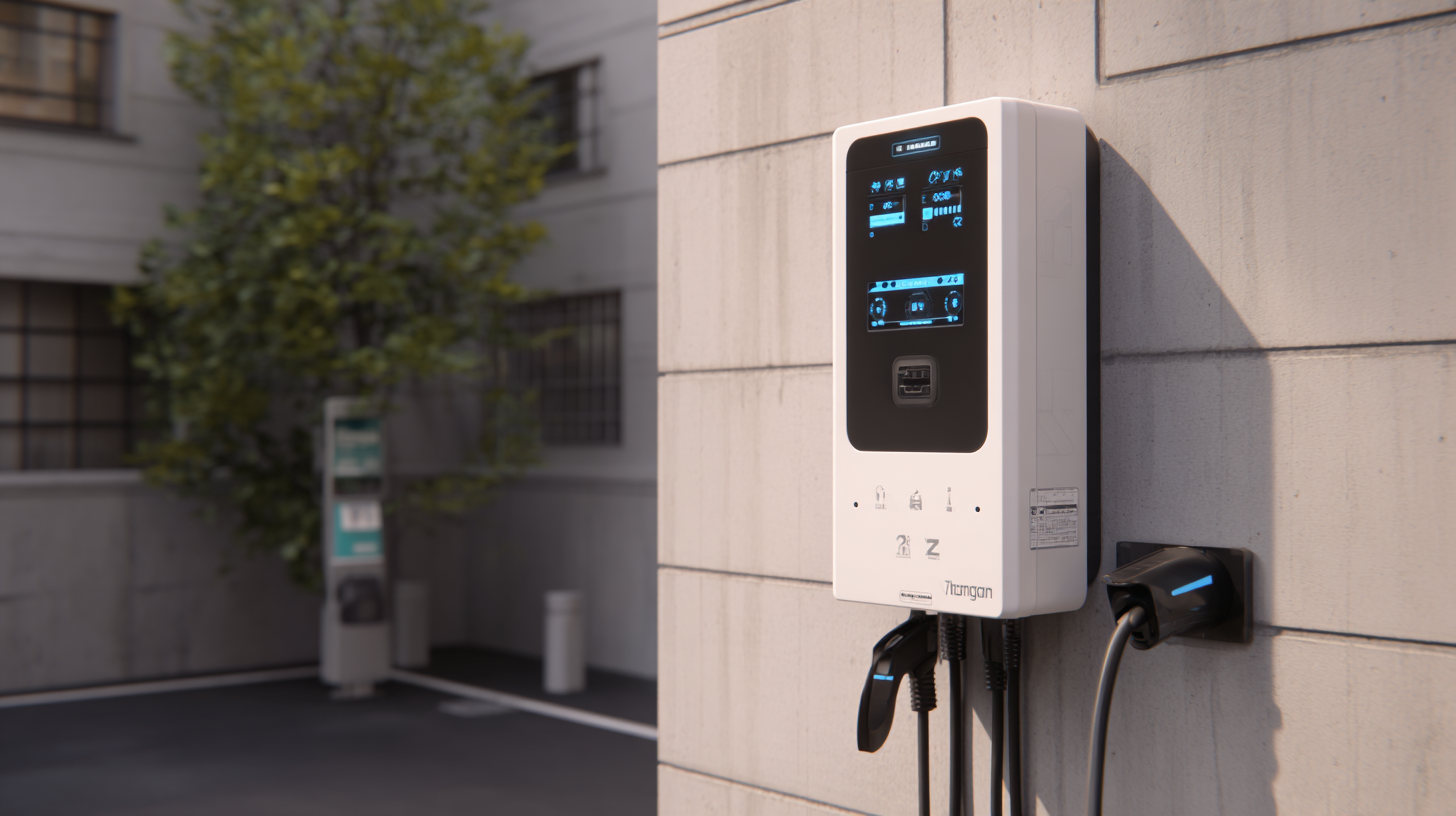
Ultimate Checklist for Choosing the Best EV Charger for Your Home
As the electric vehicle (EV) market continues to surge, with a projected growth rate of over 20% annually through 2027, the demand for efficient home charging solutions is more critical than ever. A recent report from the International Energy Agency indicates that the number of electric cars on the world's roads could reach 145 million by 2030, emphasizing the need for homeowners to invest in the right EV charger.

Choosing the best EV charger not only depends on your vehicle's charging capability but also on factors like charging speed, installation requirements, and compatibility with home energy systems. This ultimate checklist will guide you through the essential considerations to help you make an informed decision on selecting the ideal EV charger for your home, ensuring you maximize your investment while contributing to a greener future.
Key Considerations for Selecting an EV Charger: Power Levels and Home Compatibility
When it comes to selecting the best EV charger for your home, two crucial factors to consider are power levels and compatibility with your home's electrical system. Understanding power levels is essential because they determine how quickly your electric vehicle (EV) can charge. There are generally three levels of EV chargers: Level 1, Level 2, and DC Fast Charging. Level 1 chargers are typically standard household outlets providing around 2-5 miles of range per hour, making them suitable for overnight charging. Level 2 chargers, on the other hand, use a 240-volt supply, offering a more efficient charging option with 10-60 miles of range per hour, making them ideal for homeowners who drive regularly.
Home compatibility is another significant consideration when choosing an EV charger. Before purchasing, assess your home’s electrical capacity, including the amperage of your circuits. Installing a Level 2 charger may require an upgrade to your electrical system, which can incur additional costs. Furthermore, factor in the available space for installation and proximity to your parking area. It’s essential to consult with a certified electrician to ensure that the chosen charging solution aligns with your home’s electrical infrastructure, providing a safe and efficient charging experience for your EV.

Understanding Different EV Charger Types: Level 1 vs. Level 2 vs. DC Fast Charging Options
When selecting the best EV charger for your home, understanding the different types is crucial. The primary options are Level 1, Level 2, and DC Fast Charging.
Level 1 chargers utilize a standard household outlet, making them perfect for overnight charging. However, they are the slowest, often taking over 12 hours to fully charge an EV. On the other hand, Level 2 chargers provide a significant boost in charging speed, typically reducing charge time to 4-6 hours and are ideal for daily users who desire convenience and efficiency.
DC Fast Charging represents the most advanced option available, delivering charges much quicker—often in under an hour. This makes them particularly appealing for long trips or busy lifestyles. Despite the advantages of DC Fast Charging, it's essential to note that these chargers require a specific installation and may not be suitable for all residential settings. As the demand for electric vehicles grows, so too will the variety of charging options available, alongside federal incentives aimed at promoting EV adoption.
Understanding these options will help you choose a charger that best fits your lifestyle and driving habits.
Industry Standards and Safety Regulations for Home EV Charging Stations Explained
When selecting an EV charger for your home, understanding industry standards and safety regulations is crucial for optimal performance and safety. The National Electric Code (NEC) outlines specific requirements for home EV charging stations, ensuring that installations are conducted safely and effectively. According to the National Fire Protection Association, proper adherence to these guidelines can significantly reduce the risk of electrical fires, creating a safer environment for both the user and the property. For example, electric vehicle supply equipment (EVSE) is required to have GFCI protection, which can prevent ground faults and potential electrocution.
Moreover, compliance with the Underwriters Laboratories (UL) standards guarantees that your home EV charger meets rigorous safety protocols. UL standards help to ensure that chargers can handle varying electrical loads without overheating or malfunctioning. Industry reports indicate that chargers meeting UL certification not only enhance safety but can also improve efficiency by up to 20% compared to non-certified models. Selecting a charger that adheres to these regulations not only protects your investment but also promotes a sustainable approach to electric vehicle ownership.
Ultimate Checklist for Choosing the Best EV Charger for Your Home
| Criteria | Details | Industry Standards | Safety Regulations |
|---|---|---|---|
| Charger Type | Level 1, Level 2, DC Fast Charging | UL 2202, SAE J1772 | NEC 625, IEC 61851 |
| Installation Location | Garage, Driveway, Outside | NEMA Ratings | OSHA Guidelines |
| Charging Speed | 3.7 kW to 350 kW | SAE J2954 | ANSI/UL 60950-1 |
| Smart Features | Wi-Fi, App Control, Scheduling | IEC 62368-1 | CPSC Standards |
| Warranty | 1 to 5 years | ISO 9001 Compliance | Local Electrical Codes |
Analyzing Installation Requirements and Electrical System Compatibility for EV Chargers
When selecting an EV charger for your home, understanding the installation requirements and ensuring compatibility with your electrical system is paramount. According to the U.S. Department of Energy, most Level 2 home chargers require a dedicated 240-volt outlet, which typically necessitates an upgrade to your existing electrical panel if it lacks sufficient capacity. Homes built before the 1990s may especially face challenges with outdated electrical systems that may not support the demands of a modern EV charger.
Tip: Before purchasing a charger, consult with a licensed electrician to evaluate your home’s electrical capacity. They can help you understand if your panel meets the National Electrical Code requirements and whether a subpanel installation might be needed for higher amperage chargers.
Moreover, choosing a compatible charger also means considering the vehicle's charging specifications. According to ChargePoint, the average charging rate for a Level 2 charger is between 3.3 kW to 19.2 kW, depending on the model and installation. Ensuring that your home's wiring can support these ranges will not only guarantee safety but also maximize the efficiency of your charging setup.
Tip: Look for EV chargers that come with adjustable amperage settings, providing flexibility as your electrical needs evolve or if you upgrade your EV in the future.
Evaluating Cost, Efficiency, and Incentives for Home EV Charger Installation and Operation
When considering the installation of an electric vehicle (EV) charger at home, evaluating the cost, efficiency, and available incentives is crucial. According to the U.S. Department of Energy, the average cost of a Level 2 home EV charger ranges from $400 to $800, not including installation fees, which can add an additional $500 to $1,500 depending on the electrical setup. With such a significant investment, understanding the long-term savings is essential. For instance, EV owners can save an average of $800 to $1,000 annually on fuel and maintenance compared to traditional gasoline vehicles, making the upfront cost more justifiable in the long run.

Moreover, various federal and state incentives can mitigate the initial costs of purchasing and installing an EV charger. The Federal Tax Credit allows homeowners to deduct 30% of the installation costs, up to $1,000. Additionally, states such as California offer rebates that can further reduce expenses. According to the California Public Utilities Commission, these incentives can lead to savings of up to $2,500 for homeowners. By thoroughly assessing the total costs alongside potential savings and incentives, homeowners can make an informed decision when selecting the best EV charger for their needs.
